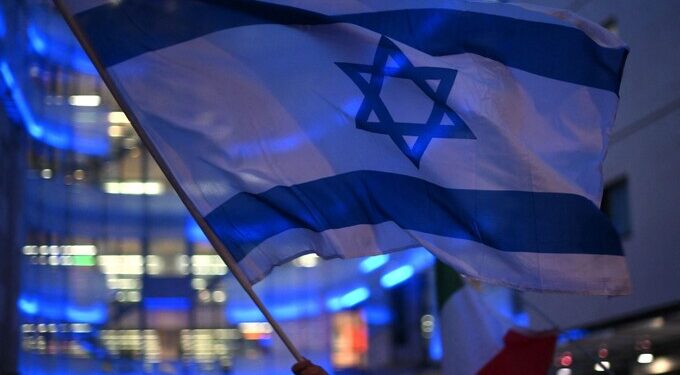In the Telegraph, James Warrington has written an excellent piece on bias, antisemitism and the use of language in the coverage of the Israel-Hamas conflict by Left-leaning media outlets and its implications for journalistic impartiality. Here’s an excerpt:
For Israeli satirists, the BBC’s coverage of the Hamas conflict was simply too good to resist.
In a sketch on Eretz Nehederet, Israel’s answer to Saturday Night Live, actors lampooned the British broadcaster’s coverage of a rocket attack on a hospital in Gaza with a spoof news bulletin.
“More, more,” urges the stern-looking presenter, clad in a blonde wig, as the number of alleged fatalities from the attack jumps randomly higher. “We love Hamas,” reads the scrolling text below. …
But beneath the comic veneer lies serious concern. Across Israel, and around the world, frustrations have grown at how many parts of the media have reported the conflict.
The BBC, a lightning rod for controversy, has found itself at the centre of the firefight. But it is not alone. Publications including the Guardian and the New York Times have repeatedly come under criticism from politicians and Jewish groups amid allegations of bias and even antisemitism in their coverage.
For many observers, the conflict has exposed a clear hypocrisy in how Left-leaning media outlets, who pride themselves on their progressive stance, approach stories about Israel. And behind the scenes at these organisations, bosses are grappling with divisions among their politically-charged employees as tensions bubble to the surface.
So as the conflict drags on and the threat of escalation lingers, will the media emerge unscathed as the western Left indulges in Hamas’s poison?
Since the terror attacks of October 7th, all news outlets have been plunged into a quagmire of confusion, disinformation and conflicting testimony. But amid all this, it is those organisations to the left of the political spectrum – whether in their internal culture or more overtly in their output – that have found themselves most often under pressure.
The BBC, New York Times, Reuters and Press Association were all forced to backtrack over their breathless reporting of the blast at the Al Ahli Arab Hospital in Gaza that killed hundreds of Palestinians.
The media outlets were quick to conclude that the explosion had been caused by an Israeli strike, despite relying on Hamas officials as their key source. U.S. intelligence officials now believe the blast was caused by a failed rocket fired by the Palestinian Islamic Jihad.
The BBC apologised for speculating on the cause of the explosion, but not before Israel accused the broadcaster of perpetuating a “modern blood libel” – a reference to false claims dating back to the Middle Ages that Jews killed Christian boys.
U.S. President Joe Biden was reportedly furious at the New York Times’s credulous coverage, warning it could have led to an escalation in the Middle East. The U.S. newspaper offered a full apology, admitting its editors “should have taken more care with the initial presentation, and been more explicit about what information could be verified”.
While the hospital blast marked the nadir of press coverage of the conflict to date, it is far from an isolated incident.
The BBC was forced to launch an urgent investigation after several of its journalists in the Middle East appeared to celebrate the Hamas attacks.
Meanwhile, the public service broadcaster has tied itself in knots over its refusal to brand Hamas a terrorist organisation, opting instead to use the word “militants”. …
Furious debates over language may seem parochial, but on topics as fraught as the Israel-Palestine conflict, words matter.
When a murderous mob stormed the Dagestan airport in Russia in search of Jewish passengers from Israel, the Associated Press newswire described the incident as a “protest”. This, in turn, was picked up by publishers including the Washington Post.
And when a Gazan who featured in a 2019 BBC documentary said revolutionary songs “encourage you to rip a Yehudi’s head off”, the broadcaster caused controversy by translating the Arabic word to “Israeli” instead of “Jew”. …
Whether through overt antisemitism or more subtle uses of language, the controversy has shed light on the contradictions embedded within Left-wing media outlets.
While claiming to speak truth to power and be an arbiter of morality, the publications appear blind to the prejudices espoused by many of their employees, and in turn in their coverage.
Worth reading in full.











To join in with the discussion please make a donation to The Daily Sceptic.
Profanity and abuse will be removed and may lead to a permanent ban.